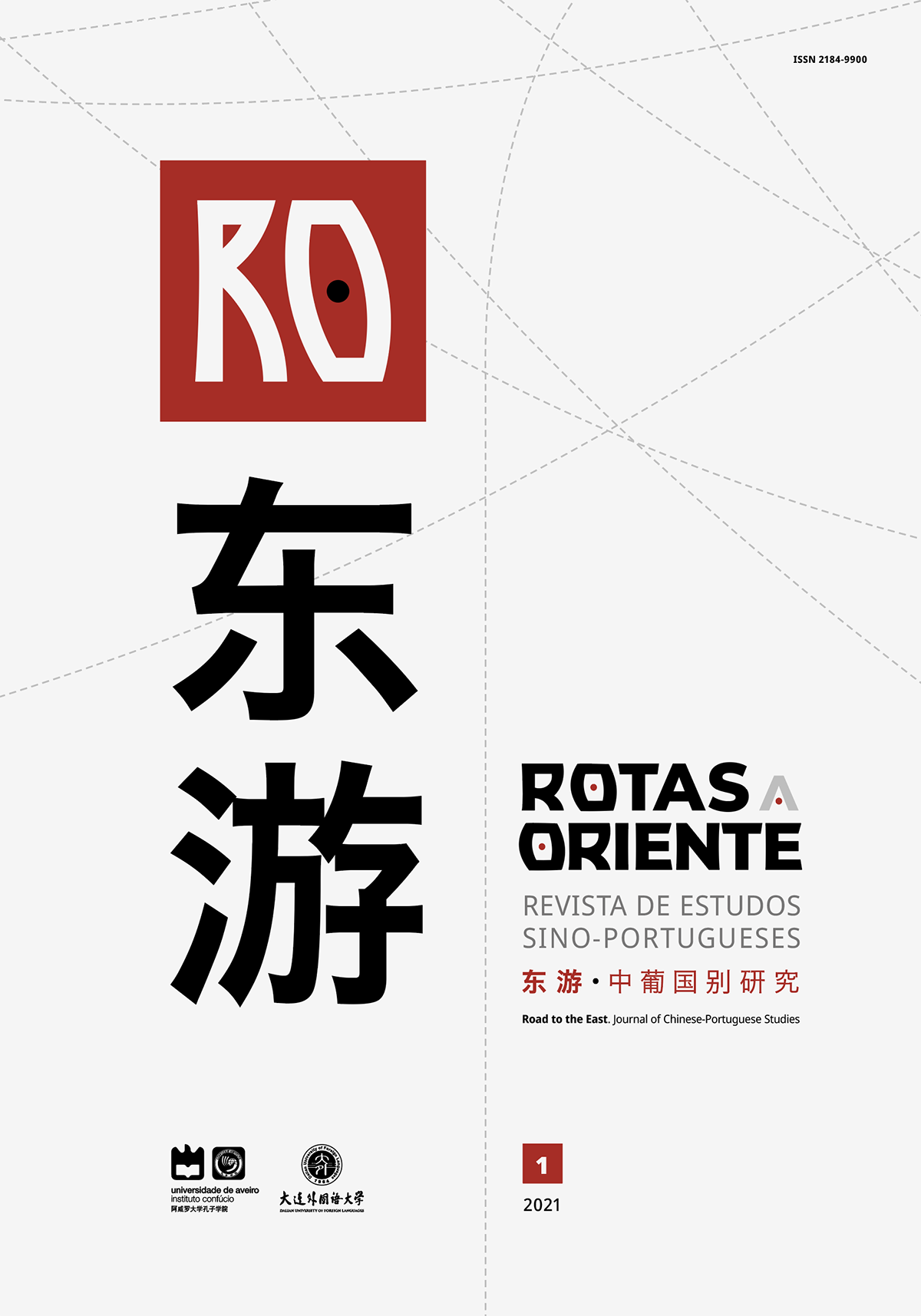Reescrita focada: superação de incorreções por aprendentes chineses de PLE a partir de correção indireta
Resumo
O desenvolvimento da competência de escrita mobiliza frequentemente a correção dos textos pelo professor. Por si só, a correção pode evidenciar problemas existentes, mas não assegura a interiorização do conhecimento implicado. Para essa interiorização, têm sido procuradas estratégias que associem a correção à realização de tarefas pelo aprendente. Entre essas estratégias, encontra-se o feedback corretivo indireto, através do qual o professor assinala a existência de uma incorreção, cabendo ao aprendente tentar corrigi-la.
O presente estudo teve como objetivo analisar o grau de sucesso alcançado por estudantes chineses, na tentativa de correção de incorreções assinaladas pelo professor. Os resultados mostram que a percentagem de sucesso se aproxima de dois terços, variando segundo os domínios e revelando alguns problemas como mais resistentes, designadamente nos domínios da gramática e do discurso. A permanência de casos de insucesso na reescrita implica a necessidade de complementar a tentativa de correção com outras atividades.
Referências
Alimohammadi, B., & Nejadansari, D. (2014). Written corrective feedback: focused and unfocused. Theory and Practice in Language Studies, 4(3), 581-587.
Almasi, E., & Tabrisi, A. R. N. (2016). The effects of direct vs. indirect corrective feedback on iranian efl learners’ writing accuracy, Journal of Applied Linguistics and Language Research, 3(1), 74-85.
Baleghizadeh, S., & Dadashi, M. (2011). The Effect of Direct and Indirect Corrective Feedback on Students’ Spelling Errors. Profile, 13(1), 129-137.
Barbeiro, L. (2007). Aprendizagem da ortografia: Princípios, dificuldades e problemas. Porto: Edições ASA.
Barbeiro, L. (2019). Níveis de proficiência na perspetiva das incorreções: Análise de produções escritas de aprendentes chineses. II Congresso Internacional “Diálogos Interculturais Portugal-China”, Aveiro: Instituto Confúcio da Universidade de Aveiro (no prelo).
Barbeiro, L. (2021). Estratégia de reescrita focada: Da correção à transformação do conhecimento na aprendizagem de Português Língua Estrangeira (PLE). Anais do I Congresso de PLE da Columbia University (no prelo).
Benson, S., & Dekeyser, R. (2019). Effects of written corrective feedback and language aptitude on verb tense accuracy. Language Teaching Research, 23(6), 702-726.
Bitchener, J., & Ferris, D. (2012). Written corrective feedback in second language acquisition and writing. New York: Routledge.
Bitchener, J., & Knoch, U. (2008). The value of written corrective feedback for migrant and international students. Language Teaching Research, 12(3), 409-431.
Bitchener, J., & Knoch, U. (2009). The relative effectiveness of different types of direct written corrective feedback. System, 37, 322-329.
Carecho, J., Fernandes, A., & Soares, R. (2020). Feedback do professor e (re)escrita em PLNM: A perspetiva dos alunos num estudo de caso. Indagatio Didactica, 12(2), 159-179.
Conselho da Europa (2001). Quadro Europeu Comum de Referência para as Línguas: Aprendizagem, Ensino, Avaliação. Porto: Asa.
Council of Europe (2018). Common European Framework of Reference for Languages: Learning, Teaching, Assessment ̶ Companion volume with new descriptors. Council of Europe. Disponível em www.coe.int/lang.
Ellis, R. (2009). A typology of written corrective feedback types. ELT Journal, 63(2), 97-107.
Ellis, R., Sheen, Y., Murakami, M., & Takashima, H. (2008). The effects of focused and unfocused written corrective feedback in an English as a foreign language context. System, 36, 353–371.
Erlam, R., Ellis, R., & Batstone, R. (2013). Oral corrective feedback on L2 writing: Two approaches compared. System, 41, p. 257-268.
Eslami, E. (2014). The Effects Of Direct And Indirect Corrective Feedback Techniques On EFL Students’ Writing. Procedia - Social And Behavioral Sciences, 98, 445-452.
Farrokhi, F., & Sattarpour, S. (2011). The effects of focused and unfocused written corrective feedback on grammatical accuracy of Iranian EFL learners. Theory and Practice in Language Studies, 1(12), 1797-1803.
Granger S. (2008). Learner corpora. In A. Lüdeling, & M. Kytö (Eds.). Corpus Linguistics. An International Handbook. Vol. 1. Berlin & New York: Walter de Gruyter, 259-275.
Han, Y. (2017). Mediating and being mediated: Learner beliefs and learner engagement with written corrective feedback. System, 69, 133-142.
Han, Y., & Hyland, F. (2019). Academic emotions in written corrective feedback situations. Journal of English for Academic Purposes, 38, 1-13.
Hosseiny, M. (2014). The role of direct and indirect written corrective feedback in improving Iranian EFL students’ writing skill. Procedia - Social and Behavioral Sciences, 98, 668-674.
Karim, K,, & Nassaji, H. (2020). The revision and transfer effects of direct and indirect comprehensive corrective feedback on ESL students’ writing. Language Teaching Research, 24(4), 519-539.
Kassim, A., & Ng, L. (2014). Investigating the efficacy of focused and unfocused corrective feedback on the accurate use of prepositions in written work. English Language Teaching, 7(2), 119-130.
Lee, I. (2019). Teacher written corrective feedback: Less is more. Language Teaching, 52, 524-536.
Lee, I. (2020). Utility of focused/comprehensive written corrective feedback research for authentic L2 writing classrooms. Journal of Second Language Writing, 49, 100734.
Li, S., & Vuono, A. (2019). Twenty-five years of research on oral and written corrective feedback in System. System, 84, 93-109.
Linh, Đ. (2018). The effectiveness of indirect written corrective feedback as perceived by teachers and students of a public university in Vietnam. International Journal of Education & Literacy Studies, 6(4), 152-162.
Liu, Q., & Brown, D. (2015). Methodological synthesis of research on the effectiveness of corrective feedback in L2 writing. Journal of Second Language Writing, 30, 66-81.
Mao, S., & Crosthwaite, P. (2019). Investigating written corrective feedback: (mis)alignment of teachers’ beliefs and practice. Journal of Second Language Writing, 45, 46-60.
Mcmartin-Miller, C. (2014). How much feedback is enough?: Instructor practices and student attitudes toward error treatment in second language writing. Assessing Writing, 19, 24-35.
Poorebrahim, F. (2017). Indirect written corrective feedback, revision, and learning. Indonesian Journal of Applied Linguistics, 6(2), 184-192.
Rahmawati, S. M. (2017). Direct and indirect corrective feedback on EFL students writing skill: a case study in a junior high school in Bandung, Journal of English and Education, 5(1), 64-77.
Rose, D. (2017). Evaluating the task of language learning. In B. Miller, P. McCardle, & V. Connelly (Eds.). Development of writing skills in individuals with learning difficulties. (pp. 161-181). Leiden, Boston: Brill.
Rose, D., & Martin, J.R. (2012). Learning to write, reading to learn: Genre, knowledge and pedagogy in the Sydney School. London: Equinox.
Salami, M., & Moini, M. (2013). The impact of indirect focused and unfocused corrective feedback on written accuracy. International Journal of Foreign Language Teaching & Research, 1(4), 35-44.
Sampson, A. (2012). Coded and uncoded error feedback: Effects on error frequencies in adult Colombian EFL learners’ writing. System, 40, 494-504.
Sato, M., & Loewen, S. (2018). Metacognitive instruction enhances the effectiveness of corrective feedback: variable effects of feedback types and linguistic targets. Language Learning, 68(2), 507-545.
Seiffedin, A., & El-Sakka, S. (2017). The impact of direct-indirect corrective e-feedback on efl students’ writing accuracy. Theory and Practice in Language Studies, 7(3), 166-175.
Storch, N. (2018). Written corrective feedback from sociocultural theoretical perspectives: a research agenda. Language Teaching, 51(2), 262–277.
Storch, N., & Wigglesworth, G. (2010). Learners’ processing, uptake, and retention of corrective feedback on writing. Studies in Second Language Acquisition, 32, 303-334.
Truscott, J. (2007). The effect of error correction on learners’ ability to write accurately. Journal of Second Language Writing, 16, 255–272.
Truscott, J., & Hsu, A. Y. (2008). Error correction, revision, and learning. Journal of Second Language Writing, 17, 292–305.
Os direitos permanecem com os autores.
Licença Creative Commons: Atribuição 4.0 Internacional.








